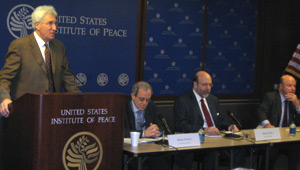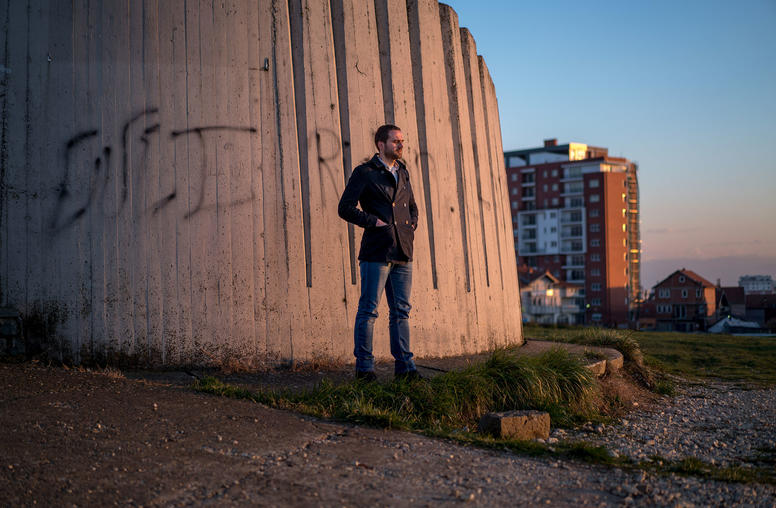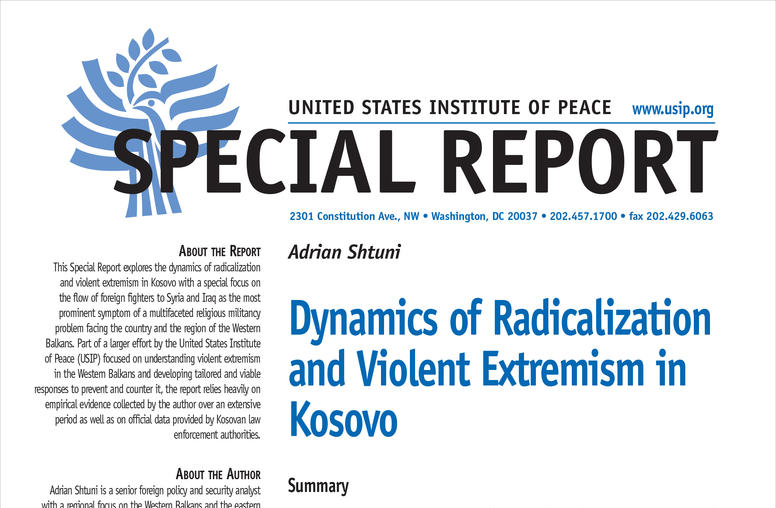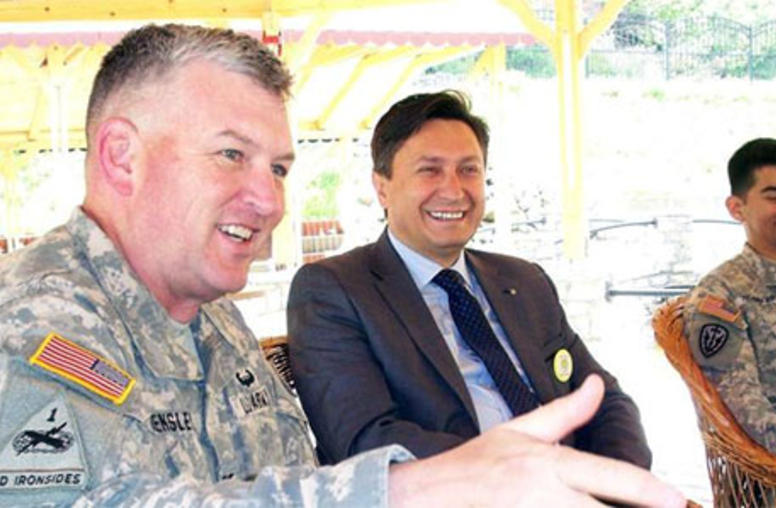Kosovo: What Next?
On February 26, USIP hosted a debate on the Kosovo issue and its consequences between two prominent experts on Kosovo—Frank Wisner, special representative of the secretary of state for Kosovo talks, and Dimitri Simes, president of the Nixon Center. Wisner discussed the case for Kosovo’s independence and attendant U.S. and European support, while Simes elaborated on the reasons behind Moscow’s support for Belgrade and the implications of Kosovo for Russian foreign policy.
USIP President Richard H. Solomon kicked off the event, mentioning the need for a "broader exposure to the exchange of views" on the issue of Kosovo. Vice President Daniel Serwer moderated.
Wisner argued that with Kosovo’s forthcoming supervised independence, a "long long drawn out chapter in history has finally been closed." He underscored that Kosovo is an exception in the array of areas worldwide that have claimed independence because of the suffering the region has been through in the last decade.

Simes argued that Kosovo’s independence will carry repercussions for Russian foreign policy and U.S.-Russia foreign relations, including Russian cooperation on the Iran nuclear issue and Russia’s policy of "creeping annexation" toward two breakaway regions in the Caucasus: Abkhazia and South Ossetia. Moscow, he argued, was currently supporting Serbia in part because of perceived Russian humiliation in the war in the NATO-led war against the former Yugoslavia in 1999.
Both speakers concurred that it is essential for Washington and Moscow to seek avenues to work ahead after Kosovo’s independence.
Other points Wisner and Simes covered included: the speakers’ mutual condemnation of the recent riots in Serbia; disagreement over the meaning of a UN Security Council resolution on the nature of Kosovo’s future; and recent U.S. coordination with European allies on the issue.
The event, under the auspices of the Center for Post-Conflict Peace and Stability Operations was part of USIP’s longstanding efforts in the Balkans region, which began in the 1990s.
![]() Read more coverage of the event from the National Interest.
Read more coverage of the event from the National Interest.
Archived Audio
To listen to audio or to view video, please click on the links provided below. You also can right click on the links and choose "Save Target As" or "Download Linked File." This will save the file to your computer and then allow you to play it in your media player directly. More Audio Help.
- Listen to the audio from this event.
1:53:54 - 20.4MB
Speakers
- Ambassador Frank Wisner
Special Representative of the Secretary of State to the Kosovo Status Talks - Dimitri Simes
President of the Nixon Center - Daniel Serwer, Moderator
U.S. Institute of Peace



